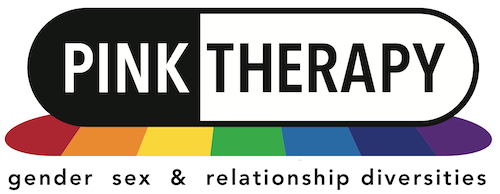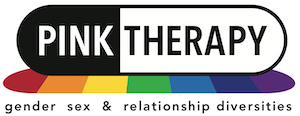Tayler Remi | Neurodivergent Psychotherapist for LGBTQ+, ENM, Kink & Sex Workers
About the Therapist
Hi, I’m Tayler - a queer, neurodivergent therapist.
I work with people navigating identity, trauma, shame, burnout, relationships, and big life transitions – especially those who’ve been harmed, pathologised, or misunderstood by the very systems that were meant to offer safety, whether that’s therapy, healthcare, family, relationships, or society itself.
My approach is collaborative and grounded in power with, not power over. I work relationally, at your pace, with deep respect for your lived experience. You won’t be judged or squeezed into a model that doesn’t fit your needs, identity, or way of being in the world.
This is trauma-aware, affirming therapy – especially for queer, kinky, non-monogamous, neurodivergent, and chronically ill folks who are tired of having to explain their existence just to be understood, supported, or taken seriously.
- Queer
My core psychotherapy training includes:
- Postgraduate Diploma (PGDip) in Counselling and Psychotherapy from the University of Salford
- BSc in Psychology from the University of Liverpool
- PGCert in Counselling Skills from the Contemporary Institute of Clinical Sexology (GSRD-affirming)
- PGCert in Integrative Transpersonal Counselling from Re-Vision, London.
I’m a registered member of the following professional bodies:
British Association for Counselling and Psychotherapy (BACP)
- Registered Member MBACP
- Registration number: 414145
National Counselling and Psychotherapy Society (NCPS)
- Accredited Member MNCP (Acc.)
- Registration number: NCS23-05692
British Psychological Society (BPS)
- Graduate Member (GMBPsS)
- Registration number: 546742
Specialist Training
Alongside my core qualifications, I continue to deepen and expand my practice through ongoing CPD and development.
I have completed specialist training on complex trauma, domestic violence, coercive control, neurodivergence, sexuality, gender, and relationship diversity. For a full list of my specialist training, please head over to my qualifications page.
| Award | Awarding body | Year of award |
|---|---|---|
My Approach
My approach is integrative, responsive, and relational - meaning I adapt the work to fit you, not the other way around. I draw from person-centred therapy, somatic and trauma-aware practice, IFS-informed parts work, and neurodivergent-affirming frameworks to meet you where you are.
IFS (parts work) helps you meet the different inner voices or responses that show up — the parts that shut down, over-function, numb out, or disappear - not as flaws, but as protectors.
This model is especially supportive for neurodivergent, chronically ill, and LGBTQ+ clients, offering a creative, non-linear way to build self-trust, compassion, and clarity without needing everything to be “tidy” or fixed.
When it feels safe, we can also gently bring the body into the work, paying close attention to your nervous system so you can understand how it protects and recovers, and build a life that actually supports it.
My Values & Ethics
In terms of values and ethics, my work is rooted in anti-oppressive, culturally affirming, and trauma-aware practice. I hold a clear stance: therapy is not neutral - and neither am I.
I hold an unapologetically affirming stance on:
-
Sex work is real work
-
Trans rights are human rights.
-
Refugees and migrants are welcome here.
-
Neurodivergence is a difference, not a deficit.
-
Black lives matter
-
Therapy must be decolonised, not just diversified.
-
Free Palestine
These values aren't just personal - they shape how I practise, make decisions in the room, stay accountable as a cis, white woman, and how I keep learning. I'm committed to ongoing CPD, regular supervision, and reflective peer spaces, particularly with queer, disabled, neurodivergent, and global majority therapists.
They also shape my approach to safeguarding and ethical care. I work from a harm reduction stance that centres autonomy, survival, and dignity - especially for those whose lives and choices are often criminalised or pathologised. I don’t conflate risk with danger; you can talk to me about things others might panic about - sex work, kink, substance use, suicidal thoughts - and I won’t jump to methods of control.
I only consider breaching confidentiality in rare cases of serious, immediate harm to you or others, and I’ll always aim to talk with you first. My commitment is to relationship, not surveillance. Therapy should be a place where you’re not just safe, but free to bring your full self.
My Professional Background
I’ve spent the past 15+ years working alongside people who’ve been stretched thin by survival - worn down by institutions, expectations, and roles that demanded too much and gave too little. My work has centred queer, neurodivergent, chronically ill, sex-working, and global majority communities - people who often carry a lot, but are rarely held with the depth, care, and understanding they deserve.
- Compassion-focused therapy
- Feminist therapy
- GSRD therapy
- Humanistic
- Integrative
- Internal Family Systems Therapy (IFS)
- Neurodivergent
- Person-Centred
- Relational
- Relationship therapy
- BDSM | Kink
- Bi- | Pansexual
- Consensual non-monogamy
- Lesbian
- Non-binary | Genderqueer
- Queer
- Questioning
- Trans
- One to one
- Partially wheelchair-adapted
- Adults
- Seniors (60+)
- Young adults (16-24)
- Online
- In Person
My standard fee is £80 for a 60-minute session or £100 for a 75-minute session. I offer a full 60-minute hour (rather than the traditional 50-minute therapy hour) to support clients who need more time to settle, regulate, and close without rushing - particularly those who are neurodivergent, processing trauma, or navigating high emotional load.
Sessions are available weekly, fortnightly, or monthly, depending on your needs and stage of therapy. They take place either online on Zoom, Tuesdays - Thursdays, or in-person at my therapy room in Manchester City Centre on Mondays.
I understand that not everyone from marginalised communities experiences financial hardship - but these groups are more likely to face systemic barriers that make therapy inaccessible. With this in mind, I base my sliding scale on a community care model: one rooted in trust, mutual support, and the understanding that taking a reduced-fee space limits availability for someone else who may be in urgent need.
Sliding scale places are prioritised for clients who are LGBTQ+, neurodivergent, disabled, racialised, or engaged in survival or precarious sex work. I don’t ask for proof or financial documents, but I do ask that you’re honest about what you can afford, so that, as a community, we can make therapy accessible for as many people as possible.
If you’re unsure whether I’m the right fit, have questions about fees or availability, or want to get a feel for how I work, you’re welcome to book a free 15–20 minute consultation. You can also visit my website to read more about my approach, accessibility policies, and what to expect.
Sorry, no records were found. Please adjust your search criteria and try again.
Sorry, unable to load the Maps API.



